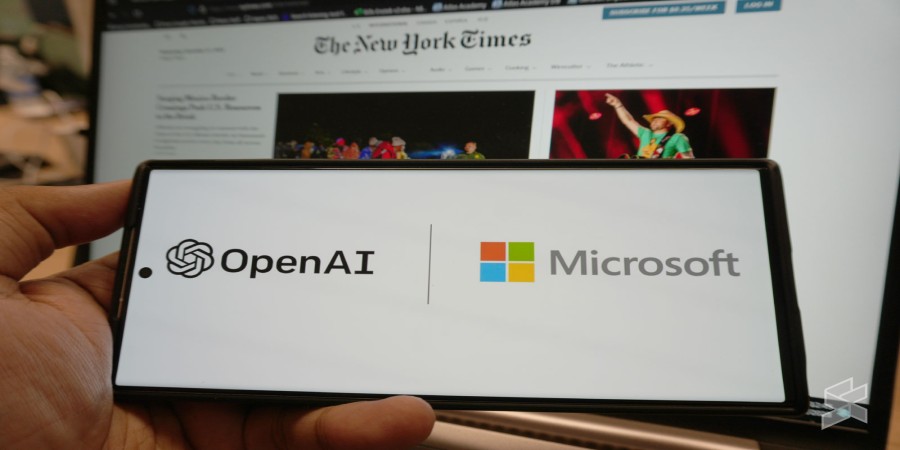

The New York Times Takes on Tech Titans: Legal Battle Unveiled Over Unauthorized Use of Content in AI Models
In a groundbreaking legal move, The New York Times has launched a lawsuit against tech giants OpenAI and Microsoft, alleging the unauthorized use of millions of articles in training their powerful AI models. The battle between media and tech takes center stage as the Times claims its journalism has been exploited without consent or compensation, sparking a major debate over copyright issues in the evolving landscape of generative AI.
The Law Pronounced: Content Conflict and AI Innovation
Filed on Wednesday, the Times said that OpenAI and Microsoft used their articles to train AI chatbots without proper authorization. The lawsuit claims the two companies benefited from the Times' substantial investment in high-profile content production, creating a conflict unlike any content agreement made by other media organizations.
Protecting Free Journalism: Stakes and Consequences
This legal process highlights the critical importance of protecting a free press. The lawsuit emphasizes that if news organizations cannot protect their content, it could result in a significant decline in journalistic output, with far-reaching implications for society as a whole.
Demands for Justice: Seeking damages and material cease and desist orders
The legal battle seeks damages and a court order forcing OpenAI and Microsoft to stop using Times content in AI model training. Additionally, the lawsuit calls for the deletion of previously acquired data. While exact damage figures remain unknown, The Times suggests the potential damage could be in the billions of dollars.
Also read: Chat Revolution: Microsoft Unveils Copilot AI Chatbot for Android Users
Defending the Tech Giants: Transformative Technology or Exploitation?
Despite attempts at negotiation, OpenAI and Microsoft argue that the use of their content falls under the category of "transformational" technology, suggesting that it does not require a commercial arrangement. The lawsuit challenges this defense, asserting that compensation for using the Times' content to create a non-competing product is unreasonable.
Copying and copying of AI: Accusations of misinformation
The lawsuit further alleges that the AI-generated content closely mimics the distinctive style of The New York Times, sometimes attributing false information to credible news sources. It also highlights the importance of decades worth of archived news in training AI models, raising questions about the authenticity and responsibility of AI-generated content.
Also read: Microsoft's Windows 10 Exit: A Potential E-Waste Surge and Golden Opportunities
As the legal battle unfolds, it signals an important moment in the relationship between the media and AI technology, setting the stage for a debate over the ethical use of content in the rapidly evolving field of artificial intelligence. Stay tuned for updates on this seminal legal dispute that could reshape the landscape of AI innovation.
(Image Credit: SoyaCincau)
Popular articles

Dec 14, 2023 04:51 PM

Dec 08, 2023 01:45 PM

Dec 21, 2023 06:04 PM

Dec 26, 2023 07:15 PM

Dec 08, 2023 07:07 PM
Categories
Comments (0)